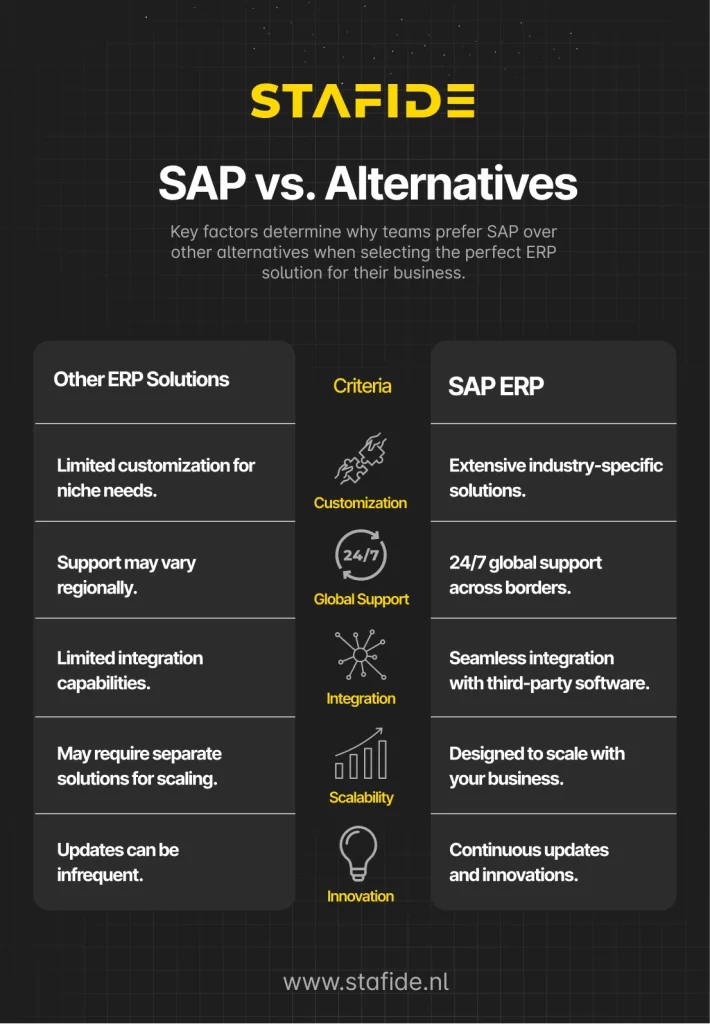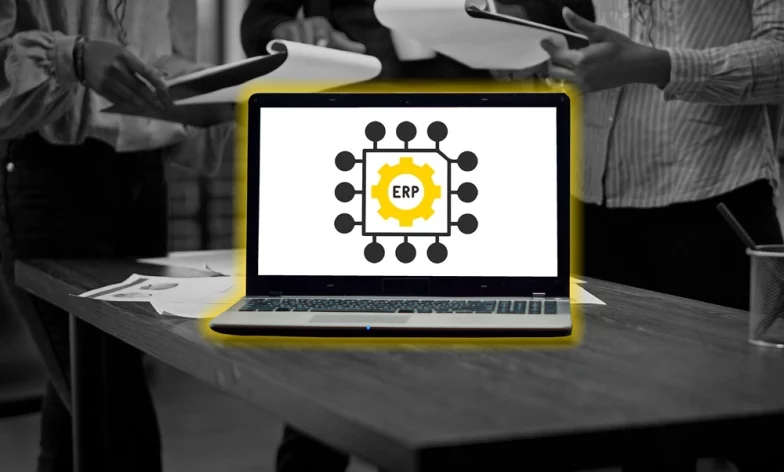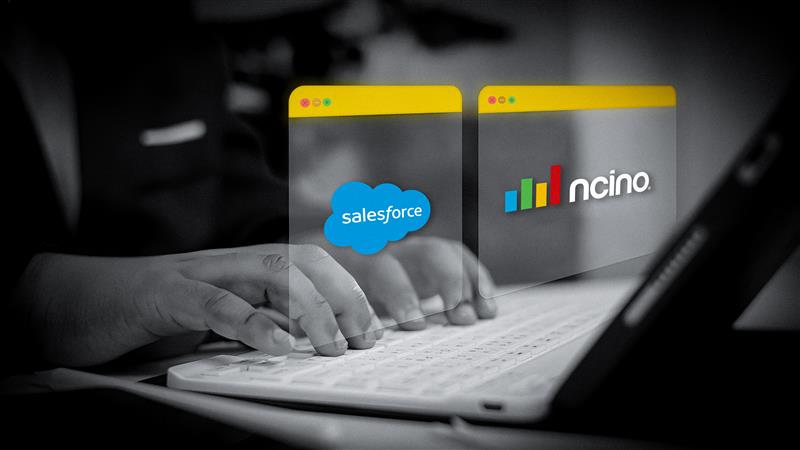In today’s fast-paced business environment, enterprise resource planning (ERP) systems have become essential for growing companies. Among the many ERP solutions available, SAP stands out as a global leader. Its advanced tools streamline operations and provide businesses the support they need to scale efficiently. As companies evolve, SAP ERP plays a critical role in managing complexity, driving growth, and maintaining a competitive edge.
What is SAP ERP?
SAP ERP is a comprehensive software solution that integrates core business functions like finance, human resources, production, supply chain, and customer relations. Unlike traditional management systems, SAP ERP allows for real-time data processing, providing critical insights that help businesses make data-driven decisions, enhance productivity, and foster collaboration across departments.
Key Features of SAP ERP
- Scalability: SAP ERP is designed for businesses of all sizes, from startups to global enterprises, offering flexibility to scale effortlessly.
- Customization: SAP ERP can be tailored to meet the specific needs of various industries, ensuring seamless alignment with business processes.
- Integration: With SAP ERP, businesses can unify multiple departments and functions, creating a single source of truth for more efficient operations.
- Automation: The software automates tasks like invoicing, payroll, and inventory management, allowing teams to focus on high-impact activities.
- Analytics and Reporting: SAP ERP provides powerful analytics and reporting features, enabling businesses to track performance in real time and make informed decisions.
Why SAP ERP is Essential for Growing Businesses
Enhanced Efficiency
As businesses grow, inefficiencies can slow down progress. By automating manual processes and integrating business functions, SAP ERP helps increase efficiency, reduce operational costs, and improve productivity. This is vital for companies looking to maintain their competitive edge while scaling.
Data-Driven Decision Making
With growth comes complexity, and decision-making needs to be quick and data-backed. SAP ERP’s real-time data processing and advanced analytics empower businesses to make faster, better decisions, providing a competitive advantage in today’s rapidly changing market.
Improved Customer Experience
SAP ERP enables businesses to offer a more personalized customer experience by centralizing customer data and streamlining processes. Quick and accurate responses to customer inquiries can set a growing business apart from competitors.
Future-Proofing Your Business
As industries evolve, so do business needs. SAP ERP continuously updates its features, ensuring businesses stay ahead of the curve. The platform’s flexibility and scalability make it an ideal tool for future-proofing your business.
SAP ERP’s Influence Across Industries
SAP ERP isn’t just a solution for one sector; its impact is far-reaching across various industries:
- Manufacturing: SAP ERP helps streamline supply chain management, production planning, and inventory control, making it a favorite in the manufacturing sector.
- Retail: Retail businesses use SAP ERP for managing inventory, sales, and customer relations, enabling them to provide better customer experiences and operational efficiency.
- Healthcare: In healthcare, SAP ERP ensures better resource management and compliance with industry regulations, helping organizations provide better patient care.
- Finance: SAP ERP provides real-time financial insights, helping companies manage budgets, forecast future financial performance, and ensure compliance with financial regulations.
- Energy and Utilities: The system helps manage assets, maintenance, and compliance for energy and utility companies, driving operational efficiency and regulatory adherence.
Across all industries, SAP ERP drives business growth by integrating complex processes, enhancing productivity, and enabling companies to stay ahead in their respective markets.
SAP ERP vs. Other ERP Solutions

Implementing SAP ERP for Growing Businesses
Successful implementation of SAP ERP can transform a business. Here’s a more detailed breakdown of the process:
- Assessing Business Needs: Before implementation, businesses must evaluate their current processes, identify inefficiencies, and set clear goals for how SAP ERP will improve operations.
- Choosing the Right Partner: SAP-certified partners can guide businesses through a smooth implementation, offering expert insights and best practices tailored to the industry.
- Customizing the Solution: One of SAP ERP’s greatest strengths is its ability to be customized to fit the specific needs of a business. This ensures that the solution aligns perfectly with your company’s processes and goals.
- Training and Onboarding: Proper training is critical to a successful SAP ERP implementation. Ensure all team members are equipped to use the system effectively by investing in comprehensive training programs.
- Monitoring and Optimization: After implementation, it’s important to continuously monitor the system’s performance and make adjustments as your business evolves.
Conclusion
For businesses aiming to scale and thrive in today’s competitive market, SAP ERP is an essential tool. It empowers companies to automate processes, make data-driven decisions, and improve operational efficiency—all of which are critical for growth.
At Stafide, we understand that implementing SAP ERP requires more than just a technical solution. It requires the right talent—professionals who understand the nuances of SAP and can help businesses leverage its full potential. Our network of SAP experts is well-versed in the latest industry trends, ensuring your business has the expertise it needs to grow.
FAQs
1. What types of businesses benefit from SAP ERP?
SAP ERP is ideal for businesses of all sizes, from small and medium enterprises (SMEs) to large corporations, across industries like manufacturing, healthcare, retail, and finance.
2. How long does it take to implement SAP ERP?
Implementation times vary depending on the complexity of the business. It can take a few months to over a year.
3. Can SAP ERP integrate with other software systems?
Yes, SAP ERP is designed to integrate seamlessly with third-party software, ensuring smooth transitions and operations.
4. Is SAP ERP customizable for specific business needs?
Yes. SAP ERP offers extensive customization options to meet the unique requirements of different industries and businesses.





